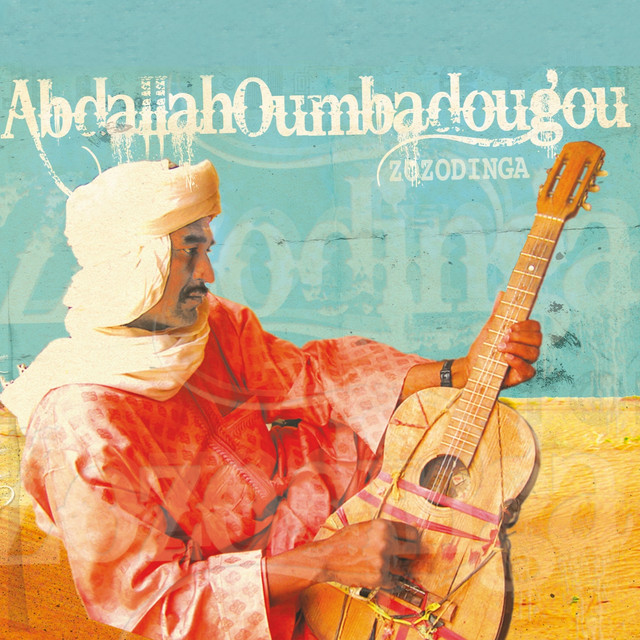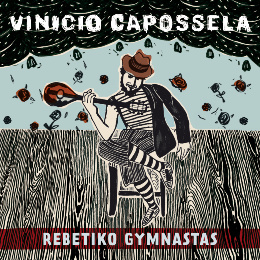
“Zagzan” (2012) – Abdallah Ag Oumbadougou * Written by Abdallah Ag Oumbadougou * Album: Zozodinga * Label: Culture & Résistance
Abdallah Ag Oumbadougou, a revered figure in Tishoumaren music (also known as Tuareg blues or desert blues), passed away on January 4, 2020 at the age of 58. Those seem to be the only details available. Oumbadougou’s “desert rebel” nickname was no trifle – when his Tuareg people faced increased marginalization in the northwest African region, especially in his homeland of Niger, he became an exile, occasionally getting sent back to Niger to serve prison sentences after which he’d return to life as an outcast. His main offense: involving himself in the Tuareg resistance, lending voice to the movement through his own music and with the group Takrist n’Akalt (build the country), which he joined in the training camps of Libya. When peace agreements were signed in 1995, Oubadougou was able to return home to perform to—and record for—the audience he’d cultivated via cassette circulation. His influence on the popular Tuareg sound, by replacing traditional instruments with his guitar, is enormous. Its hypnotic strains now fill auditoriums in major cities, particularly when artists such as Tinariwen or Etran Finatawa go touring. Words of resistance continued to be Oumbadougou’s stock and trade throughout the remainder of his years. The song “Zagzan,” which translates to “Trust,” is about the uneasiness of life among city folk as opposed to the mountain folk, who “fight for and claim the rights of their people.”




